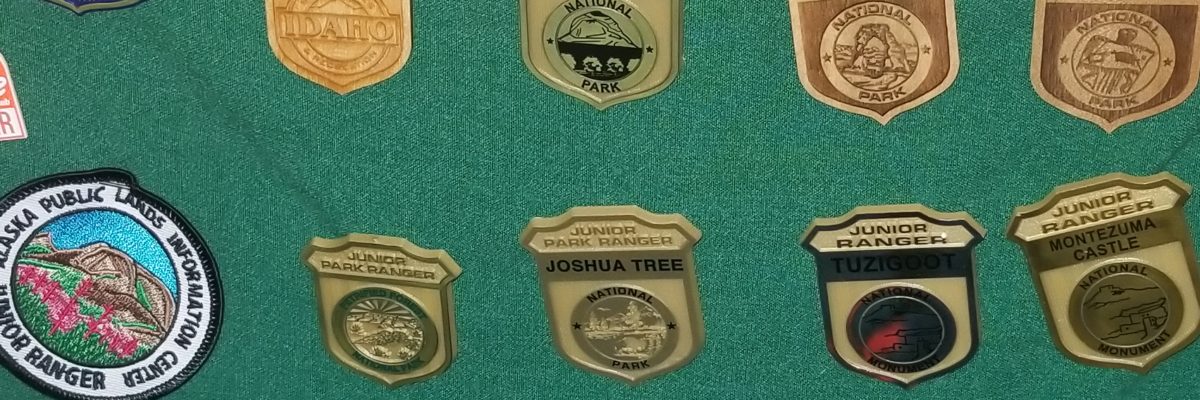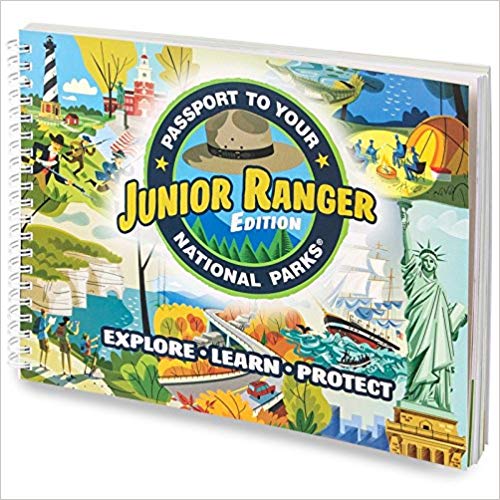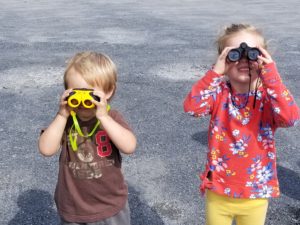Before roadschooling, my children had a 4-H education. All their curriculum was through 4-H. It provided every subject and topic they needed to know. Now that we are on the road we switched from 4-H curriculum to a Jr. Ranger curriculum.
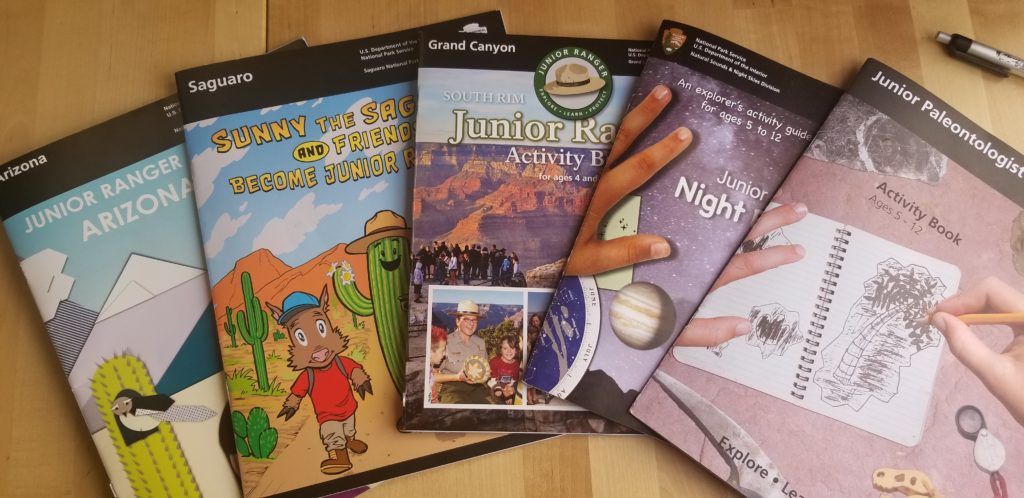
Many people think that the Jr. Ranger books are just an extra project for the kids to work on to earn a badge, but they are full of great learning opportunities if you really take the time to work through them.
Right now as I write this we are boondocking outside of the Grand Canyon South Rim. I have a pile of junior ranger books in front of me. We picked them up within the past week. They are Saguaro National Park, Grand Canyon South Rim (there is a different book for the north rim), Arizona Explorer, Junior Paleontologist, and Night Explorer.
Most Jr. Ranger books are for kids about ages 5-12. My 3 year old is able to complete them with some help and my almost 13 year old doesn’t plan on stopping them anytime soon. Each book has different activities for different ages and abilities. Most children only want to do the required amount to earn the badge, but if you work through them with your child, it can be a full curriculum. And it’s free!
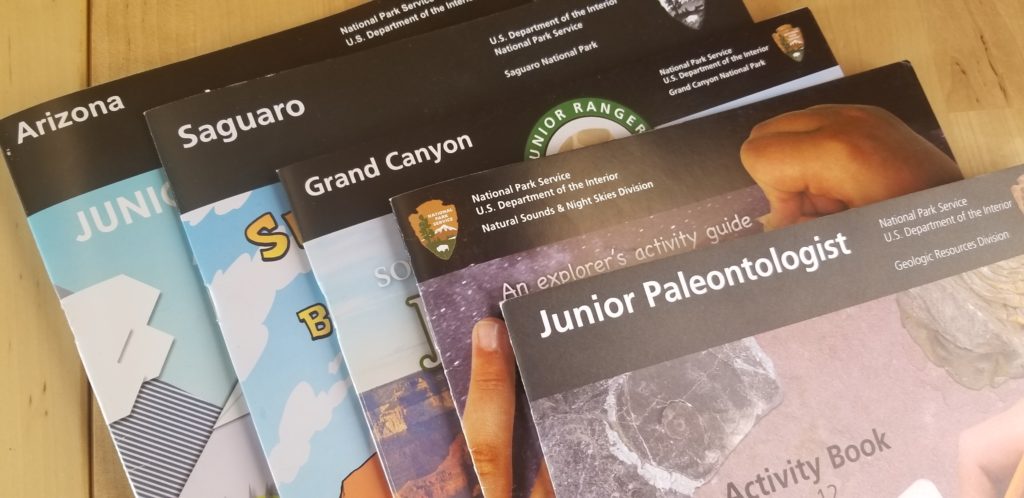
In the past 10 months my kids have each earned 40 badges. Let’s take a look at the last five books that my children have worked on this past week. Here are some of the things they have learned about:
- Leave no trace
- John Wesley Powell
- Survival skills
- Planning ahead
- Taking pictures
- Ancient civilizations and cultures
- Plant identification
- Animal identification
- The Antiquities Act
- NPS Organic Act
- Timelines
- Types of rocks and rock formations
- Charts and graphs
- Nutrition
- Poetry- rhyming, cinquain, haiku,
- Crossword puzzles
- Native American History
- Pictographs and petroglyphs
- Surface water/ bodies of water
- Adaptations
- Environmental protections
- Eras and Eons
- Math- Addition, subtraction, multiplication, division and estimations
- Food chains
- Observations and documentation
- Making good choices
- Videography
- Using 5 senses
- Habitats/ ecosystems
- Field guides
- Ultraviolet and infrared light
- Light pollution
- Nocturnal and diurnal
- Limiting magnitude
- How to use a planisphere
- Phases of the moon-waxing, waning, gibbous, crescent, full, new
- Field of view
- Telescopes
- Constellations
- Using scissors
- Mnemonic
- Planets and solar systems
- Galaxy, nebula, globular cluster, asteroid, comet and binary star system
- Fossilization
- Vertebrates, invertebrates
- Climate change
- Prehistoric plants and animals and land formations
- Petrification
- Dinosaurs
- Measurements
Wow! That is quite a list. Who know kids could learn so much just from doing junior ranger books. It is up to each child and family how thoroughly they work through the book. My three year old works through his books about 20 times each, he loves them. He is also learning different skills than the older kids. They all learn at their own level and their own pace. Many academic subjects are covered. English, reading, writing, vocabulary, history, science, geography, geology, archaeology, paleontology, astronomy, art, poetry, physical education, fine motor, large motor, photography, and spelling. They also practice talking to strangers when they interview a ranger and turn in their books. They practice listening skills when listening to ranger talks and patience when they wait in line.
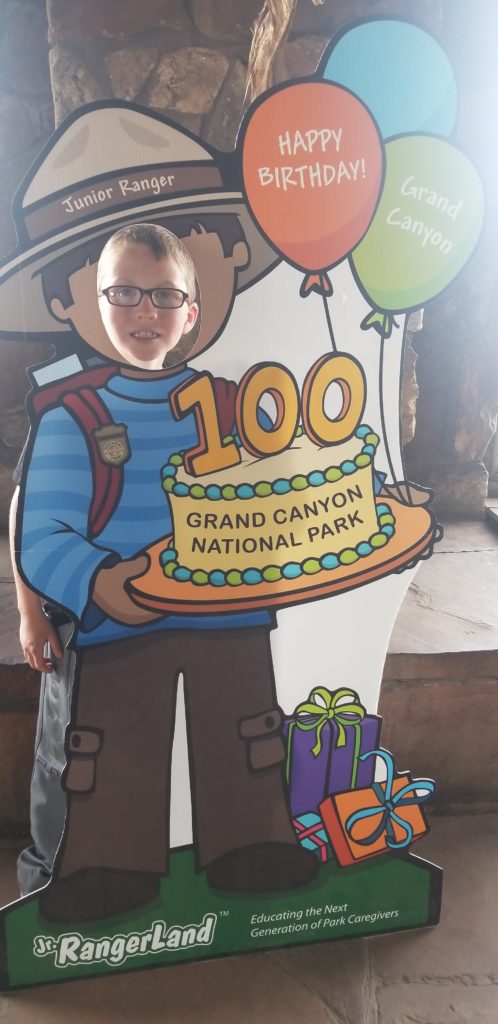
The best part about a junior ranger education is that the kids are generally having fun. Checking out the parks, attending ranger programs, watching the educational films, and doing the books to earn a badge is fun for most kids. When we force our kids to do them, they hate them, but when they are optional, they gladly work through the books and when kids are having fun, they are learning.
